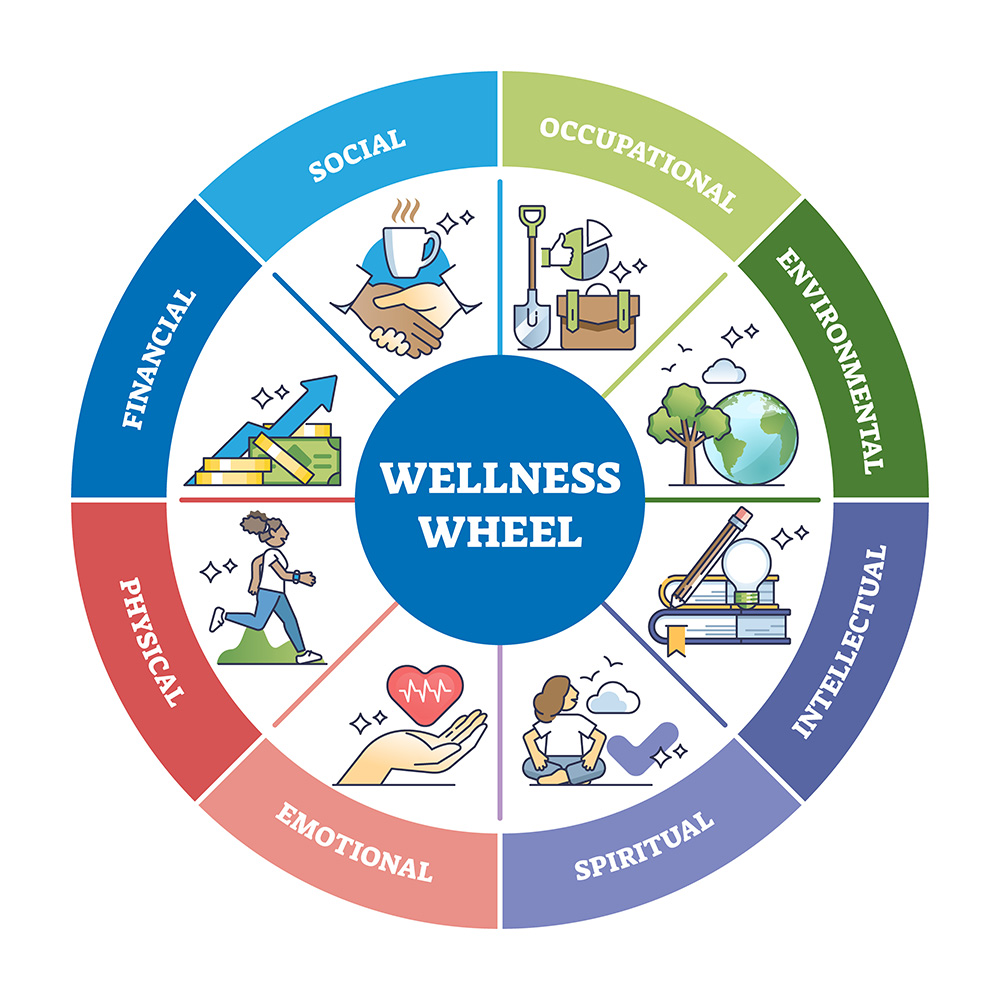
The holidays can be especially challenging if you’re living with a serious illness like cancer. The following strategies can help you make the most of this special time.
The holidays are widely considered a joyful time of year, but the truth is that anyone, regardless of circumstance, can find this season difficult. For some, it may be due to extra stress, social or familial pressure, loneliness or grief. For others, a serious illness such as cancer can make it hard to face the holidays.
To make the most of the holidays during a difficult time, start by exploring and honoring your unique needs.
Begin with self-reflection
Take some time to think about what would nurture you in mind, body and spirit. Doing this before the holidays is ideal, but it’s never too late to get started.
Consider what your unique needs are, what boundaries you want to set and what forms of nurturing or self-care most benefit you.
Unsure where to start? The U.S. Substance Abuse and Mental Health Services Administration (SAMHSA) has defined eight dimensions of wellness to help people understand where they’re thriving in life — and where they could use a little more nurturing or attention. These factors are:
- Emotional (your feelings)
- Environmental (home and other surroundings)
- Financial (your money situation)
- Intellectual (mental stimulation and fulfillment)
- Occupational (work)
- Physical (body)
- Social (friends and loved ones)
- Spiritual (your personal spirituality or values)

You may find it helpful to think about each area and consider what’s working well and where there is room for improvement. Really tap into questions such as “Where am I at?” or “What do I need?”
Write your thoughts down in a journal or make a wheel-shaped chart with a section for each factor of wellness. As you consider each dimension, color in the corresponding section to reflect how fulfilled you feel in that area. For example, if you’re unhappy in your job but your social life is thriving, you would color in only a small section of the “occupation” section but color in most of, if not all, the social section. Once you have done this, you can create a customized, culturally relevant and practical self-care plan.
Many people find this exercise gives them a clearer picture of where things stand and provides a handy, at-a-glance reminder of their needs as they make decisions in their daily lives.
Practice self-compassion
Once you realize the areas that need attention, keep the lines of communication open with loved ones. Setting clear boundaries can be particularly helpful as well. Here are a few examples of how to set boundaries clearly:
- “I don’t want to talk about what’s going on with my health. Let’s focus on having fun and just being present in this moment.”
- “I would love to attend your party, but I already know it will be too much for me. Can we spend some other time together, just the two of us?”
- “These treatments are rough on me so I can’t be there for the full dinner. But we can stop by for dessert!”
During the holidays, anyone can feel a lot of pressure to be joyous, high-energy or social, or to spend money they may not have. If you can, avoid buying into those expectations, and remember that it’s okay to not always be okay.
Coping with loneliness
The holidays are hard for anyone who doesn’t have close friends or family. If you’re already struggling with loneliness, explore how you can make this time of year meaningful just for yourself, whether it means taking an opportunity for rest, spiritual reflection or indulging in activities or hobbies you don’t normally have time for.
If you need extra support, there’s a wide range of resources and services available, such as group therapy or peer support. Your oncologist or oncology social worker will have information on support groups and services in your area.
Take good care of yourself
As with any other time of year, one of the best things you can do for your health is to work in partnership with your medical team. Ask them in advance whether there are limitations you’ll need to plan for — such as alcohol intolerance, being in a room with lots of people during flu season or participating in outdoor activities in the cold air.
A bit of extra pampering can feel amazing during the holidays, but self-care at its best means optimizing your wellness the way a good parent or caretaker would. This means doing things you don’t necessary love but that will add to your overall sense of well-being such as reviewing your monthly budget (financial), learning about a topic that interests you (intellectual) or even just getting enough sleep (physical).
Remember that taking a small step can sometimes make a big difference — for example, drinking some water or taking a nap if you don’t feel well, or popping onto a video call with friends rather than attending a party.
And when you start to feel down, don’t try to force your mood. Give yourself permission to grieve the holiday season you would have preferred to have.
Go easy on yourself and remember that any adjustments you may need won’t have to be all-or-nothing. There’s plenty of room for compromise. Prioritize the values, people and activities that mean the most to you, and find ways to keep cherishing them however you can.
Topics
